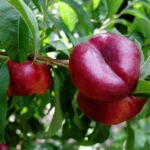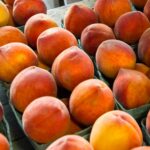Australia: FAO rep optimistic despite TR4 doom and gloom

A representative from the Food and Agricultural Organization's (FAO) Plant Protection Division has said while the suspected case of Panama Disease Tropical Race IV (TR4) in Queensland is worrying, he believes the industry will be able to contain the disease and continue to serve as an example to other countries. 
Australian authorities are expected to confirm later this week whether or not a banana plantation in the North Queensland region of Tully has been contaminated with the strain.
TR4 has never been detected in Queensland before, although in the 1990s the disease wiped out the vast majority of plantations in the neighboring Northern Territory.
A plant disease expert from the United Nation's (UN) agency, Fazil Dusunceli, said he had not expected to see the disease crop up in Australia again given the stringent biosecurity measures in place, but he was optimistic it would could be brought under control.
"This was a little bit of a surprise to us to be honest because we know how serious the Australian institutions are, and our colleagues there are so knowledgeable about the problem and the risks," Dusunceli told www.freshfruitportal.com.
"They have had some experience earlier on in the Northern Territory - they first recorded the TR4 in 1997 or so - and they have been acting very seriously. We have been saying to all the other countries that if appropriate measures are taken, the disease can be stopped and contained. So this has been a really good example for us, and other countries as well.
"We of course don't know what may be the cause, and that is a little worrying, but on the other hand the Australian institutions have pretty good quarantine measures and biosecurity systems and I believe they could manage to contain it where it is in Queensland too."
Dusunceli's comments come somewhat in contrast to the author of the book 'Banana: The Fate of the Fruit That Changed the World', Dan Koeppel, who said he was unsurprised at the suspected TR4 detection given the single-product global banana business model and the lack of a strategy in combatting the disease.
Dusunceli also highlighted it was of course extremely easy for the disease to spread, and so it was imperative that the industry remain vigilant.
"There might occasionally be accidental escapes - this might be one of those - but we hear that they [Australian authorities] have reacted very strongly in responding to this. I personally trust that they can manage it. If it can be achieved, the Australians will be the ones to do it," he said.
"That's how I see it. But of course this doesn't mean that we should relax. We have to be vigilant and they have to be vigilant."
The FAO is currently working on a global program to tackle TR4, which is predominantly focused on assisting developing countries, as well as Australia, Dusunceli said.
He said the program partly involved the sharing of knowledge and experiences between different countries and organizations, and more opportunities would be explored in due course.
"In short this is another lesson in ensuring that we should be more vigilant, more prepared and we should take it more seriously," Dusunceli said.
Some believe the only effective solution to rid the industry of TR4-related damge is to develop a new banana variety that is resistant to the disease to replace the common Cavendish.
Dusunceli said while there was undoubtedly promising work going on throughout the world, both in terms of natural breeding and genetic modification, an appropriate variety was not just around the corner.
"Developing a resistant variety is of course the ideal solution. This variety Cavendish was a solution to an earlier race of the same fungus," he said.
"We are aware of a number of initiatives and institutions working on developing resistant varieties. Just to name a few, Bioversity International, IITA [International Institute of Tropical Agriculture], and quite a number of universities, some of which are in Australia.
"I wish there were a variety right now that we could replace straight away, but as yet we are not in a position to replace. There is promising work, but we should not give false hope either. Research would have to be intensified and perhaps more collaboration might be useful among the scientific communities."
Photo: Wikimedia Creative Commons













































